
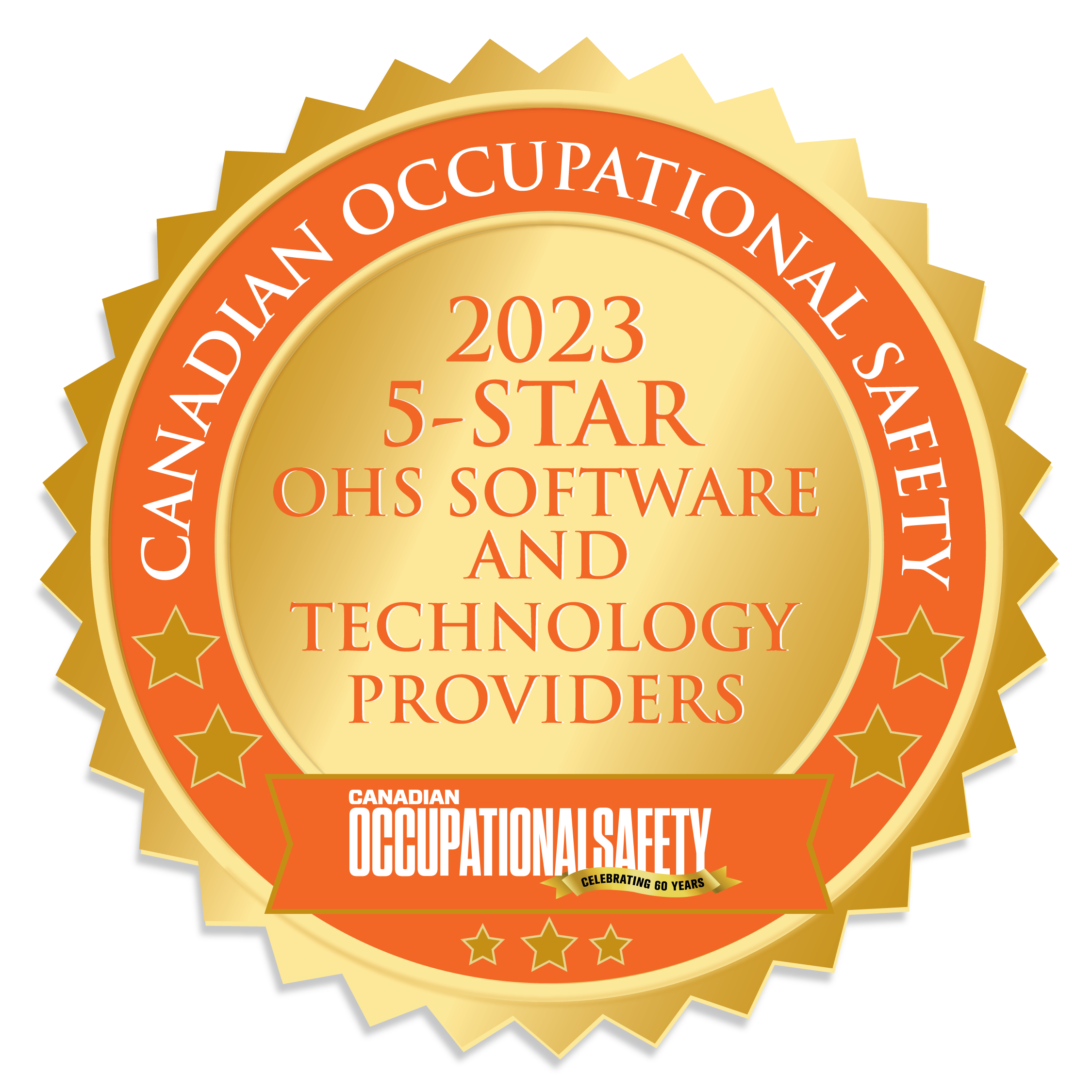
Jump to winners | Jump to methodology
There is no greater priority than the welfare of frontline workers, and Canadian Occupational Safety’s 5-Star Software and Tech Providers enable that to be achieved in a sophisticated and advanced manner.
Industry expert Nisa Karan, principal consultant at Cobra Safety, says, “Successful OHS software and technology firms understand that their solutions directly impact workplace safety and strive to be trusted partners in the pursuit of safer and healthier work environments.”
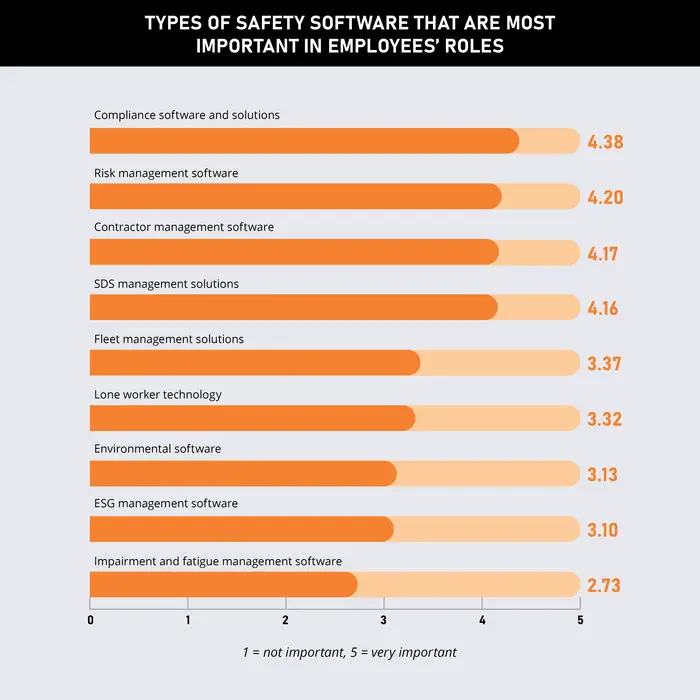
Across the cohort of winning companies in 2023, solutions to mitigate workplace risks include:
securely connecting commercial vehicles to the internet, providing advanced web-based analytics to better manage fleets and make data-driven decisions
a comprehensive safety management platform addressing manual safety process risks so OHS professionals gain confidence in their team’s compliance by connecting every level of the organization
a global satellite communicator beyond the reach of landlines or cellular networks, enabling lone workers to touch base or trigger an SOS in the most extreme Canadian climates from -20 °C to 55 °C
innovative QR code functionality on mobile devices, allowing OHS professionals to gain unprecedented access to employees’ and subcontractors’ skills and certifications via real-time monitoring
The Calgary-based firm has earned a reputation for providing an easy to use and effective solution to the issue of chemical Safety Data Sheets (SDSs). The documents are not only long but contain highly technical language and are time consuming to analyze.
Chemscape president Mike Phibbs says, “Our mindset is, what can we do to make the lives of people using these chemicals safer? The people might not even know it, but we really target making it easy for the people that actually use these chemicals and need this information.”
Part of Chemscape’s appeal is it converts all paper SDSs into digital copies, accessible via laptops or mobile devices.
In doing so, the firm:
commonly uncovers 25 percent of SDS duplicates
reduces SDS inventories by up to 40 percent
utilizes 150 easy-to-follow images
updates 30 percent of their SDS Inventory annually as chemical manufacturers update with significant data changes
Chemscape has 20 years of experience in authoring high-quality SDSs and updating SDSs from chemical suppliers. The company’s success is backed up by industry reaction.
“We have had great responses from clients and potential clients that tell us that it is indeed far easier,” explains Phibbs. “They ask us to come in and program somewhere other stuff, and we just say ‘no, we stick to our knitting’.”
This is echoed by industry professional Bhavesh Mody, a specialized consultant at Workplace Safety & Prevention Services.
“The key issue with all this software is they all come up with their own style. They all come up with their own platform that is user-friendly. So that is the biggest challenge as by the time you have someone learn the software, it’s too costly if the organization needs to make changes or discontinue it altogether," he says.
In-depth and concentrated knowledge of SDSs has enabled Chemscape to attract clients across 21 countries. The award-winning company can deliver definitive answers that clients require, such as:
type of PPE to be worn
available first aid
measures to put in place in case of a spill or a fire
administrative controls needed
advice on smoking near the chemical use
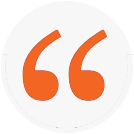
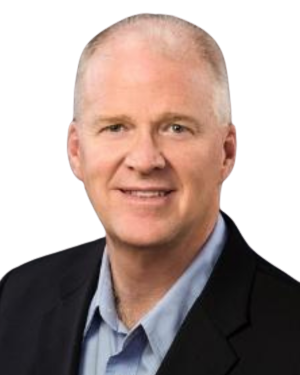
Another element of Chemscape’s offering is the ability to accurately advise on potential hazards.
These issues can include:
reproductive toxicity
cancers
targeting of organs such as kidneys and lungs
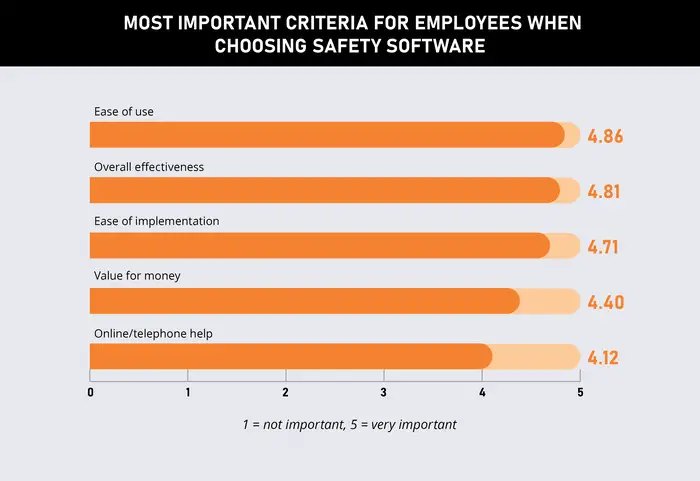
A real-life example of Chemscape’s prowess kicked in regarding a laboratory worker who returned to work after giving birth. The concern revolved around the individual’s breastfeeding.
“The client called us and said she was concerned because she didn’t want to be working with the chemicals that would affect the baby,” says Phibbs. “By the end of the day, we had a list of chemicals for them that she should not be working with and we developed a safety meeting presentation for them that talked about that entire topic.”
This was achieved due to Chemscape’s technological skills, which allows the firm to deliver on its stated goals.
“It’s an exciting time, our focus is on the worker and making the frontline better because ultimately if we can help them, that’s where we can make a change,” says Phibbs.


There are also further adaptations to Chemscape’s platform, beyond advising on SDSs. One initiative they are focusing on is modelling.
“We’re looking at how can we help our clients prioritize what chemicals they need to be worried about the most. One has between 8,000 to 9,000 different SDSs and they do industrial hygiene monitoring on 25 different substances,” Phibbs explains.
The issue is determining if this is the right number, as currently that process is often done intuitively.
“We can help them calculate and arrive at that. Maybe some of those 25 they don’t need to worry about so much, and they should be worried about five or 10 others,” he says.
This can extend to active substitution suggestion, alerting businesses to potential ways to remove danger from their processes.
This applied to one of Chemscape’s clients’ use of a particular paint thinner.
“We made a calculation that depending on their ventilation, they should be working less than 15 minutes with this,” says Phibbs. “So, they’re going to be overexposing their people but we already had a different chemical to suggest to them that they could use without worrying about exposure.”
Despite being a simple platform, there is a high degree of industry knowledge and data, which speaks to Chemscape's guiding approach.
“We anticipate for our clients the potential things that could happen,” adds Phibbs. “Our goal is to reduce complexity by turning complex things into something simple and understandable.”
This is echoed by Mody, who says, “The software has to be something that is easy to use and that can be done easily on the floor.”


There are guiding principles that leading firms in the sector should prioritize.
“Successful OHS software and technology firms should prioritize safety, ethics, and customer centricity,” Karan says.
The consultant at Cobra Safety lists the initiatives that stand out:
Commitment to safety: demonstrating a deep commitment to advancing workplace safety, contributing to a culture of prevention
Ethical practices: transparency, honesty, and adherence to data privacy and security standards are essential for trust-building
Innovation: continuous innovation to address emerging safety challenges and evolving regulations is crucial
Customer-centric approach: actively engaging with customers and providing responsive customer support
Partnerships: collaboration with industry experts, OHS professionals, and regulatory bodies to foster a holistic approach
Diversity and inclusion: promoting varied perspectives and innovative problem-solving
Sustainability: commitment to sustainability, which aligns with broader ESG principles and showcases corporate responsibility


In the process of selecting the best safety software and technology providers for 2023, the Canadian Occupational Safety team conducted one-on-one interviews with safety professionals and surveyed hundreds more within the publication’s network to gain a keen understanding of what these professionals think about current market offerings. Respondents were asked to vote for the technology providers they had dealt with across eight categories.
Technology providers were invited to nominate their own products, describe their benefits, and explain why they believed their solutions were worthy of a 5-Star award. At the end of the 15-week research period, 15 companies were named 5-Star award winners.
The 5-Star OHS Software and Technology Providers report is proudly supported by the Women in Occupational Health & Safety Society (WOHSS).